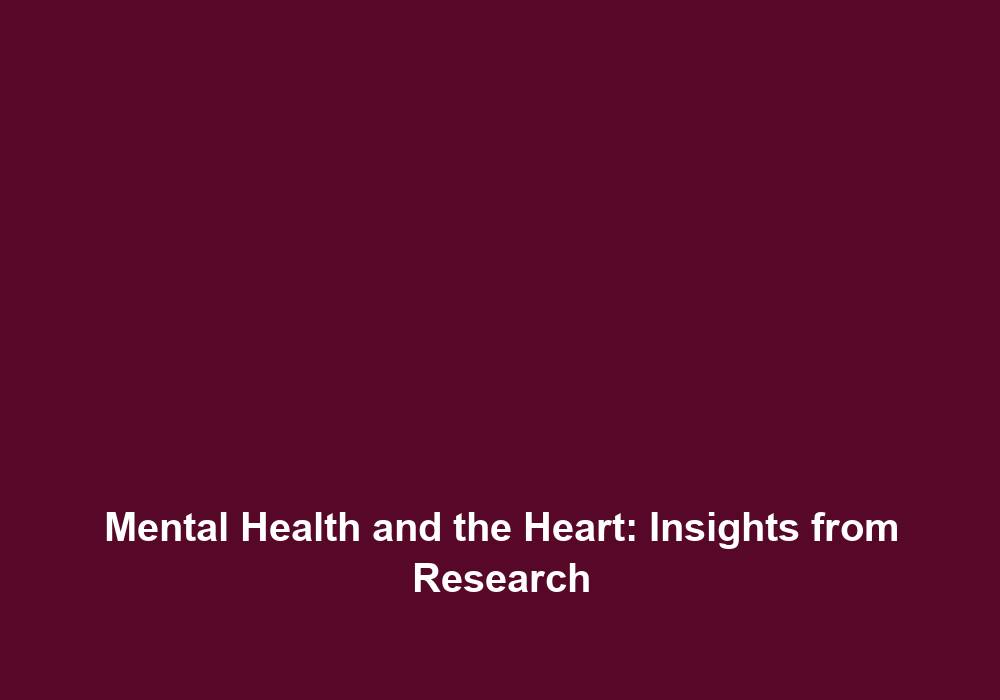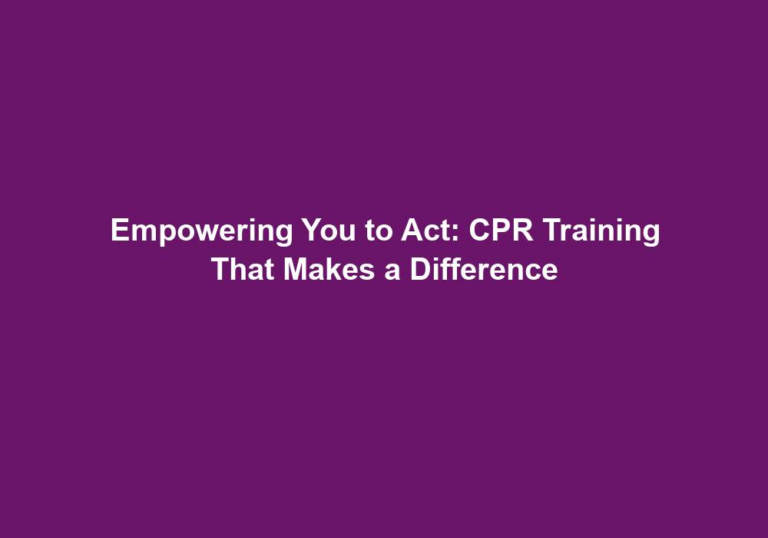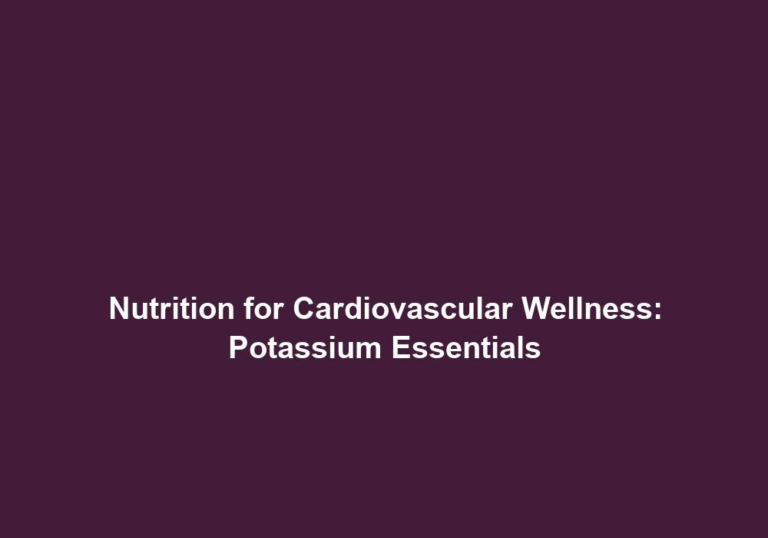Mental Health and the Heart: Insights from Research
Mental health and heart health are intricately connected, and research has provided valuable insights into this relationship. In recent years, there has been growing awareness of the impact of mental health on cardiovascular health. This article explores the existing evidence, highlighting the influence of mental well-being on heart health and the importance of addressing mental health issues for overall cardiovascular wellness.
The Link between Mental Health and Heart Health
-
Research suggests that chronic stress can have detrimental effects on both mental and cardiovascular health. Prolonged stress triggers an increase in cortisol levels and activates the body’s fight-or-flight response. This can lead to elevated blood pressure, accelerated heart rate, and increased inflammation – all of which contribute to the development of cardiovascular diseases.
Chronic stress not only affects the physical aspects of heart health but also takes a toll on mental well-being. It can lead to feelings of anxiety, irritability, and difficulty concentrating. Moreover, the constant activation of the stress response can disrupt sleep patterns and contribute to the development of mood disorders such as depression.
To effectively manage stress and minimize its impact on both mental and cardiovascular health, individuals can adopt various techniques. These include engaging in regular exercise, practicing relaxation techniques like deep breathing exercises and meditation, seeking support from loved ones, and engaging in activities that promote relaxation and enjoyment.
-
Depression and Anxiety
Depression and anxiety disorders are two common mental health conditions that significantly affect heart health. Studies have shown that individuals with depression have a higher risk of developing heart disease and are more likely to experience adverse cardiovascular events. Similarly, anxiety disorders can contribute to the development of hypertension and increase the risk of heart-related issues.
The connection between depression, anxiety, and heart health is multifaceted. Firstly, these conditions can lead to unhealthy behaviors such as smoking, excessive alcohol consumption, and poor dietary choices. These behaviors increase the risk of obesity, high cholesterol, and high blood pressure, all of which are major contributors to heart disease.
Secondly, the physiological changes associated with depression and anxiety, such as increased inflammation and elevated cortisol levels, can directly impact heart health. These changes can lead to endothelial dysfunction, plaque formation in the arteries, and an increased risk of blood clots.
It is crucial for individuals with depression or anxiety to seek appropriate mental health support and treatment. Psychotherapy, such as cognitive-behavioral therapy (CBT), can help individuals develop coping mechanisms, manage stress, and improve their overall mental well-being. In some cases, medication may also be recommended to manage symptoms and prevent their impact on heart health.
-
Behavioral Factors
Mental health conditions often influence an individual’s lifestyle choices, which can impact heart health. For instance, individuals with depression or anxiety may engage in unhealthy coping mechanisms such as smoking, excessive alcohol consumption, or an unhealthy diet. These behaviors contribute to the development of risk factors like obesity, high cholesterol, and high blood pressure, all of which increase the likelihood of heart disease.
Addressing these behavioral factors is crucial for promoting heart wellness. Healthcare providers can play a vital role in educating individuals about the importance of healthy lifestyle choices and providing resources to support behavior change. Additionally, individuals can seek support from mental health professionals who can help them develop healthier coping mechanisms and make positive changes to their lifestyle.
Engaging in regular physical activity is an effective strategy for improving heart health and managing mental well-being. Cardiovascular exercises like walking, running, or swimming not only strengthen the heart and improve circulation but also release endorphins, which are natural mood boosters. Incorporating relaxation techniques such as deep breathing exercises, meditation, or yoga can also help reduce stress levels and improve mental well-being. Seeking social support from friends, family, or support groups can provide a sense of belonging and connection, reducing feelings of isolation and stress. Engaging in hobbies or activities that promote relaxation and enjoyment can also contribute to overall well-being.
Addressing Mental Health for Heart Wellness
-
Integrating Mental Health Screening
Given the strong association between mental health and heart health, it is crucial to incorporate routine mental health screening into cardiovascular care. By identifying and addressing mental health issues early, healthcare providers can mitigate the potential negative impact on heart health and overall well-being.
Mental health screening can help identify individuals at risk of developing mental health conditions or those who may already be experiencing symptoms. This allows for early intervention, appropriate referrals to mental health professionals, and the implementation of targeted treatment plans. By addressing mental health concerns alongside cardiovascular care, individuals can receive comprehensive support for both their physical and mental well-being.
-
Collaborative Care Approach
A collaborative care model that integrates mental health professionals into cardiovascular care teams has shown promising results. This approach ensures that individuals receive comprehensive care by addressing both their physical and mental health needs. By working together, cardiologists and mental health professionals can create personalized treatment plans that optimize both heart health and mental well-being.
Collaborative care involves regular communication and coordination between healthcare providers, sharing information and expertise to develop a holistic approach to treatment. This approach not only improves patient outcomes but also enhances patient satisfaction and engagement in their healthcare journey. By addressing mental health in conjunction with cardiovascular care, the collaborative care approach acknowledges the interconnectedness of these two aspects of health and aims to provide the best possible care for patients.
-
Stress management plays a pivotal role in maintaining heart health. Individuals can adopt various techniques to manage stress effectively, such as:
- Engaging in regular physical activity, including cardiovascular exercises like walking, running, or swimming. Exercise not only improves cardiovascular fitness but also releases endorphins, which are natural mood boosters.
- Practicing relaxation techniques like deep breathing exercises, meditation, or yoga. These techniques help activate the body’s relaxation response, reducing stress hormone levels and promoting a sense of calm.
- Seeking social support from friends, family, or support groups to share experiences and alleviate stress. Connecting with others who can provide emotional support and understanding can help individuals cope with stress more effectively.
- Engaging in hobbies or activities that promote relaxation and enjoyment. Taking time for activities that bring joy and relaxation can help individuals unwind and reduce stress levels.
It is important for individuals to find stress management techniques that work best for them and incorporate them into their daily routine. Consistency and regular practice are key to reaping the benefits of stress reduction on both mental and cardiovascular health.
-
Psychotherapy and Medication
For individuals experiencing mental health conditions such as depression and anxiety, psychotherapy and medication may be recommended. Psychotherapy, such as cognitive-behavioral therapy (CBT), helps individuals develop coping mechanisms, manage stress, and improve their overall mental well-being. Medications, prescribed by mental health professionals, can also be effective in managing symptoms and preventing their impact on heart health.
Psychotherapy provides individuals with a safe and supportive environment to explore their thoughts, emotions, and behaviors. It equips them with tools and strategies to navigate challenges, build resilience, and improve their mental well-being. Medications, when prescribed and monitored by healthcare professionals, can help alleviate symptoms of depression and anxiety, allowing individuals to better manage their mental health and reduce the potential impact on heart health.
Conclusion
Research highlights the undeniable connection between mental health and heart health. Chronic stress, depression, and anxiety can significantly impact cardiovascular wellness, while healthy mental well-being contributes to a healthier heart. Integrating mental health screening into cardiovascular care, adopting a collaborative care approach, and promoting stress management techniques are crucial steps toward addressing mental health issues and promoting heart wellness. By recognizing and addressing the interplay between mental and cardiovascular health, individuals can nurture both their minds and hearts for a better quality of life.







